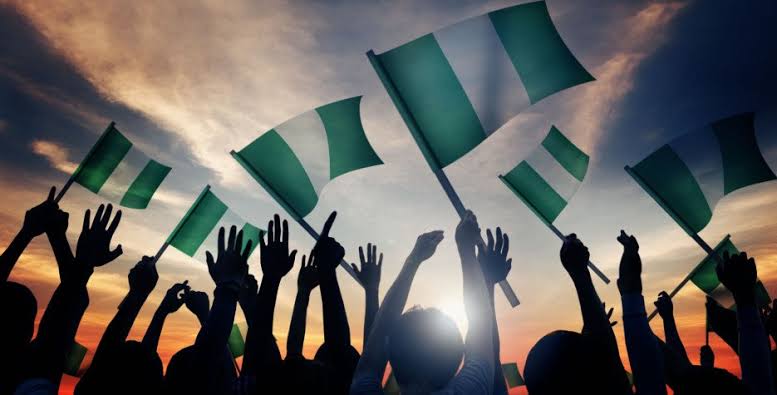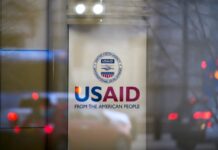The West-African country, Nigeria who got her Independence on 1st day of October 1960, is marking her 62nd year independence anniversary. Nigeria Independence took a lot of energy and efforts to actualize the long term dream, when colonization was at its demise in West Africa.
After Nigeria Independence, privy council was seen as the highest court in Nigeria, until they become Republic in 1963. The country first run parliamentary system, with Tafewa Balewa and Nnamdi Azikiwe as the heads. Before Nigeria Independence, the country was divided into three, Eastern, Northern and Western region having carved political parties from these regions.
Few years after Nigeria Independence, Nigeria was stuck with high political malpractices, as they were characterized with huge corruptions and misuse of public offices. The man who inspired military regime in Africa and make way for military intervention, Abdel Gamel Nasser of Egypt gave Africa a new look as young soldiers were not afraid to take on the steps as they oust out any erring leader in their opinions.
Young soldiers took over the affairs of Nigeria, which marked the beginning of military coup in Nigeria on 15 January 1966, led by late Kaduna Nzeogwu and install J. T Aguiyi Ironsi as the new military head. The bloody coup was justifiably considered to be one-sided, on ethnic level it breeds retaliatory response
What was known as retaliation coup, happened six months after the first coup, as group of soldiers from North led a successful putsch and install Yakubu Gowon as new head of state. General Yakubu’s rule witnessed the bloody civil war between Nigeria and short-lived Republic of Biafra under the leadership of Odumegwu Ojukwu. The 30-month civil war created a big hole that is yet to fill even till the present day.
In February 1976, Gowon was overthrown in a bloodless coup d’etat led by Murtala Mohammed, after he went for a meeting in Kampala, Uganda. General Murtala Mohammed become the head of state, shortly he was killed by Sukka Bukka Dimka as a retaliation for overthrowing his in-law, and General Obasanjo who is the closest in rank took over and handed back the rule to civilian, Constitutional Drafting Committee was chaired by Rotimi William.
Five political parties contested, in second Republic. In 1979 general election was held when the ban on political parties were lifted, UPN( the Unity Party of Nigeria), NPN( National Party of Nigeria), GNPP( the Great Nigeria People’s Party), NPP( the Nigeria People’s Party), and PRP( the People’s Redemption Party), which was conducted by then electoral body, FEDECO( the Federal Electoral Commission). The first time Nigeria practiced presidential system of government, Alhaji Shehu Shagari emerged as the winner, with both attributes of head of state and head of government were assigned to him, and Alex Ekwueme the vice president.
In 1983 one additional political party joined, the Constitution provided two term in office with four years each, and NAP( the Nigeria Advance Party) was registered. Unfortunately the second term didn’t push through, a coup was carried out and General Mohammed Buhari become the head of state.
Then come the ill-fated third Republic, under the General Ibrahim Babangida who promulgated the transition to civil rule, two political parties were registered, which marked the first time Nigeria, practiced two-party system- The Social Democratic Party (SDP) and The National Republican Convention (NRC). The cancellation of the general election saw national unrest as M.K.O Abiola declared himself president and went into hiding. General Ibrahim installed Ernest Shonekon in his interim government, who was overthrown by General Sani Abacha who is the most tyrannical leader in the history of Nigeria.
Then come the present fourth Republic in 1999 which marked traditional swearing-in of presidential office on 29 May, as democracy day but has since recognize 12 June instead as democracy day, in the honour of MKO Abiola. Abdulsalam Abubakar who was last military head in Nigeria handed the rule to civilians and many political parties emerged to contest. From there president Olusegun Obasanjo, Ya’ radua, Goodluck Jonathan and incumbent president Muhammadu Buhari.
It has been a long walk since Nigeria Independence, many political crises and civil unrest. Nigeria has failed in many aspects and yet to live up to the beauty in diversity, the expectations of average Nigerians are not met as corruption, tribalism, nepotism and favouritsm overshadowed the affairs of the country.
Nigeria continue to have secessionist groups, as some parts of the country sought to secede from Nigeria. Politicians have failed to take up the responsibilities of giving the country the best, there are more pressing crisis bedeviling the country especially on the aspect of holding its unity, but this unity has been used as a tool to promulgate injustice, unfairness and lack of equity.
This is long term failures, in all aspects, education system is a thing of mockery, series of strikes prevent students from going back to classrooms, a country that fights its education has no future, and there has been no ground to take the system forward. Health system has always been in moribund which prompt politicians to fly abroad for medical attention and leave poor masses which can’t afford expensive trip to abroad for medical examinations to become the victims of the circumstance.
Few months to general elections, it is going to be decisive moment for the country, youths are ready to take back the country which they feel has been in the hands of “old politicians” who have been the mastermind and architect of system collapse around the country, which has been the subject of unemployment, poor leadership and incompetency.
Nigeria needed to write a new chapter, and this revolves around the youth; the future of the country, they are going to take central stage in advancing this course they have to be self-evident. Nigeria is in the worst state of nation, with insecurity, anarchy and mayhem have taken over and rule all day. It is a big call as well as big question for the country’s leadership which has been left crawling.

















